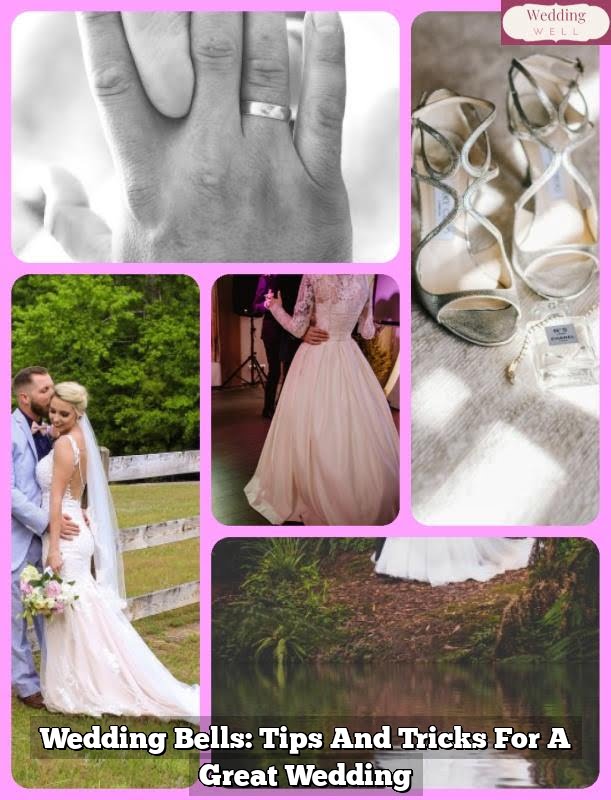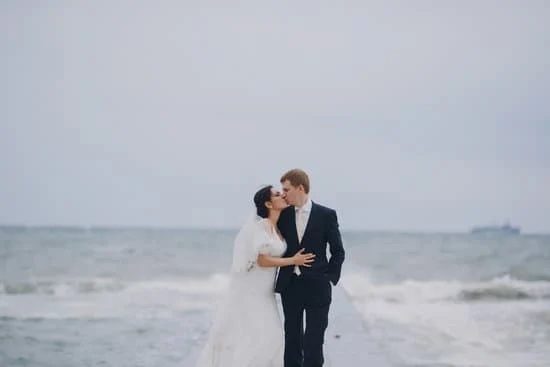What are wedding ushers? When it comes to orchestrating a smooth and seamless wedding ceremony, ushers play a crucial role in ensuring that everything runs like clockwork. From guiding guests to their seats to providing assistance and support, these individuals serve as the front-line representatives of the bridal party.
In this section, we will delve into the significance of wedding ushers and their essential role in a wedding ceremony. We will explore the origins and traditions behind having ushers at weddings, as well as their specific duties and responsibilities before, during, and after the ceremony. Additionally, we will discuss the qualities that make a person suitable for this role, including tips on usher attire and how to train and prepare them for their duties.
As we uncover the details surrounding wedding ushers, it becomes evident that their role goes beyond just escorting guests. Their presence sets the tone for the entire event and contributes to creating a welcoming atmosphere for all attendees. So let’s take a closer look at what exactly wedding ushers are and why they are an indispensable part of any memorable wedding celebration.
History of Wedding Ushers
The history of wedding ushers dates back to ancient Roman times, where ushers played a crucial role in escorting important guests to their seats during wedding ceremonies. This tradition continued through the ages and evolved to become a key part of modern weddings. In the past, ushers were often members of the groom’s family or close friends, selected for their ability to assist with various aspects of the wedding ceremony.
In medieval England, ushers were tasked with ensuring that only invited guests were allowed entry into the church or venue where the wedding was taking place. This duty was especially important during a time when gatecrashers and unwanted guests could easily disrupt a wedding celebration. As such, ushers were seen as vital in maintaining order and security at these events.
Over time, the role of wedding ushers expanded to include guiding guests to their seats in a polite and courteous manner, as well as providing any necessary assistance or information about the ceremony details. The presence of ushers at weddings today maintains this sense of formality and hospitality, adding a touch of elegance and organization to the proceedings.
| History of Wedding Ushers | Exploring the Origins and Traditions |
|---|---|
| The role of ushers dates back to ancient Roman times | In medieval England, ushers ensured only invited guests entered |
| Ushers guide guests to their seats and provide assistance | Ushers add formality and elegance to wedding ceremonies |
Duties and Responsibilities of Wedding Ushers
A wedding usher plays a critical role in ensuring the smooth flow of a wedding ceremony. Before the ceremony commences, ushers are responsible for arriving early to help with any last-minute tasks and to greet and assist guests as they arrive. This includes handing out programs, providing directions to seats, and ensuring that elderly or disabled guests are comfortably seated. Additionally, ushers may be required to assist with seating arrangements if the wedding has assigned seating.
During the wedding ceremony, ushers must remain attentive and ready to assist with any unexpected situations that may arise. They may need to communicate with other members of the wedding party or venue staff to address any issues promptly. Ushers should also ensure that late-arriving guests are escorted discreetly to their seats without causing disruption.
After the ceremony, ushers are typically responsible for guiding guests from the ceremony site to the reception venue. This could include helping guests locate transportation or providing directions if both venues are not in close proximity. It is essential for ushers to stay organized and attentive throughout this process to ensure a seamless transition between the wedding ceremony and reception.
In summary, wedding ushers play a vital role in making sure that all guests feel welcome and comfortable during a wedding ceremony. Their responsibilities encompass much more than simply showing people to their seats; they act as ambassadors for the couple’s special day, offering assistance and guidance whenever needed.
Qualities of a Good Wedding Usher
When it comes to selecting the right individuals to serve as wedding ushers, there are certain qualities and traits that can make a person particularly well-suited for this role. Ushers play a crucial part in ensuring that the wedding ceremony runs smoothly and that guests feel welcomed and comfortable. Here are some key qualities to look for when choosing wedding ushers:
1. Reliability: One of the most important qualities for a wedding usher is reliability. They should be responsible and committed to their role, showing up on time and being available to assist with any tasks or questions that may arise.
2. Friendly and Approachable: Ushers are often the first point of contact for guests as they arrive at the wedding venue. Therefore, it is essential that they possess friendly and approachable demeanor, making guests feel welcomed and at ease.
3. Organizational Skills: The ability to stay organized is crucial for wedding ushers. From helping guests find their seats to assisting with any last-minute changes or requests, ushers should be able to handle multiple tasks while remaining composed.
4. Ability to Problem-Solve: Weddings can be hectic events, and unexpected issues may arise. A good wedding usher will have the ability to think on their feet and find solutions to any problems that may occur during the ceremony.
5. Professionalism: While it’s important for ushers to be friendly, they should also maintain a level of professionalism throughout the event. This includes dressing appropriately, speaking politely, and representing the couple in a positive light.
By identifying individuals who possess these qualities and training them effectively, couples can ensure that their wedding ushers will contribute positively to their special day.
Usher Attire
When it comes to the attire of wedding ushers, there is often a balance between traditional and modern choices that reflect the overall theme of the wedding. Traditionally, ushers would wear formal attire such as a tuxedo or suit, often coordinated with the groomsmen and groom. However, in modern weddings, there is more flexibility in usher attire to match the style and vibe of the event.
For a traditional and formal wedding, classic suits in black, navy, or gray are often chosen for ushers. These suits can be paired with a crisp white shirt and a coordinating tie or bowtie. This timeless look exudes elegance and sophistication, complementing the overall formality of the occasion. Additionally, ushers may also choose to wear vests or cummerbunds for an added touch of refinement.
On the other hand, for more modern and casual weddings, ushers have the opportunity to embrace a wider range of attire options. Depending on the wedding theme and dress code, ushers may opt for lighter-colored suits or even stylish separates such as slacks paired with a blazer or sports coat. This allows for more creativity and personalization while still maintaining a polished appearance.
Regardless of whether the wedding style is traditional or contemporary, it’s important for ushers to coordinate their attire with key elements of the wedding theme. This could involve incorporating specific colors or patterns that align with the overall decor and aesthetics of the event. By doing so, ushers contribute to creating a cohesive visual experience for guests.
| Usher Attire | Wedding Theme Coordination |
|---|---|
| Traditional: Tuxedo or suit in black, navy, gray | Coordinates with formal and elegant themes |
| Modern: Lighter-colored suits or stylish separates | Allows for creativity while maintaining a polished appearance |
| Accessories: Ties, bowties, vests or cummerbunds | Can incorporate specific colors or patterns from wedding theme |
Overall, choosing usher attire involves striking a balance between tradition and contemporary style while ensuring that it aligns with the overall aesthetic of the wedding. By carefully considering these factors, ushers can enhance their role in contributing to a visually cohesive and memorable experience for all attendees.
Ushers vs Groomsmen
When planning a wedding, it’s common to be faced with the question of who to include in your wedding party. While many people are familiar with the role of groomsmen, some may wonder, “What are wedding ushers?” It’s important to understand the differences between these two roles and whether they can be interchangeable.
Roles and Responsibilities
Ushers and groomsmen serve different functions during a wedding ceremony. Groomsmen typically have a more prominent role and are often part of the wedding procession, standing by the groom’s side during the ceremony. They also play a significant role in supporting the groom throughout the wedding planning process.
On the other hand, ushers are responsible for greeting and seating guests as they arrive at the ceremony venue. They help ensure that everyone is seated comfortably and assist with any special accommodations that guests may require. While their duties don’t involve standing up with the bridal party during the ceremony, they still play a crucial part in creating a welcoming and organized atmosphere for guests.
Interchangeability
In some cases, couples may choose to have their groomsmen double as ushers for their wedding. This decision can be practical if there is a small guest list or if there is an overlap between friends and family who would naturally fulfill both roles. However, it’s important to consider whether it makes sense logistically and if those individuals are willing to take on both sets of responsibilities on your big day.
Understanding these differences between ushers and groomsmen can help couples make informed decisions when assembling their wedding party. Whether choosing traditional roles or mixing things up based on individual circumstances, having a clear understanding of these distinct positions will contribute to a smoother and more enjoyable wedding experience for all involved.
Training and Preparation for Ushers
Understanding the Role
Before diving into training and preparation, it is essential to ensure that ushers have a clear understanding of their role. Ushers are responsible for greeting guests, seating them at the ceremony, assisting with any special needs or accommodations, and ensuring that the event runs smoothly. It is important to communicate these responsibilities clearly to the ushers and address any questions or concerns they may have.
Effective Communication
Effective communication is key when preparing and training ushers for a wedding. They should be briefed on the wedding timeline, venue layout, and any specific instructions from the couple or wedding coordinator. Additionally, ushers should be provided with contact information for key individuals involved in the wedding, such as the coordinator, groomsmen, and other members of the wedding party. This will ensure that they can quickly address any issues or concerns that may arise on the day of the event.
Mock Scenarios
To prepare ushers for their role, consider conducting mock scenarios or rehearsals prior to the wedding day. This will allow them to practice seating guests, familiarize themselves with the venue layout, and troubleshoot any potential challenges.
By simulating different scenarios, ushers can gain confidence in their abilities and feel more prepared to handle unexpected situations. Additionally, providing feedback and guidance during these mock scenarios can help refine their approach and ensure that they are well-equipped to fulfill their duties on the big day.
By implementing thorough training and preparation for ushers, couples can rest assured that their wedding will run smoothly and guests will receive exceptional service throughout the event.
Conclusion
In conclusion, wedding ushers play a crucial role in ensuring the smooth running of a wedding ceremony. From guiding guests to their seats to providing assistance and support throughout the event, ushers contribute significantly to creating a positive and welcoming atmosphere for everyone in attendance. Their duties go beyond simply escorting guests and often involve providing information, solving problems, and ensuring that everything runs seamlessly behind the scenes.
The history of wedding ushers dates back centuries, with traditions and customs evolving over time. Despite the changes in societal norms and wedding trends, the role of ushers remains relevant and essential for modern weddings. Whether it’s upholding traditional protocols or adapting to contemporary practices, ushers continue to be an integral part of the wedding ceremony.
As prospective ushers are identified and prepared for their roles, it is important to keep in mind the qualities of a good usher. Patience, attentiveness, and strong communication skills are just some of the characteristics that make someone well-suited for such a responsibility.
Moreover, training and guidance are essential for ensuring that ushers understand their duties and can execute them effectively on the day of the wedding. By recognizing and appreciating the significance of wedding ushers, couples can ensure that their special day is a memorable and enjoyable experience for everyone involved.
Frequently Asked Questions
What Do Ushers Do at a Wedding?
Ushers at a wedding are responsible for greeting and escorting guests to their seats before the ceremony. They also help hand out programs, ensure guest comfort, and assist with any other tasks as needed.
What Is the Difference Between an Usher and a Groomsman?
The main difference between an usher and a groomsman is their level of involvement in the wedding party. While ushers are typically responsible for seating guests and have minimal duties during the ceremony, groomsmen play a more significant role by supporting the groom, participating in processional and recessional, and often giving a toast at the reception.
What Is the Role of an Usher?
The primary role of an usher is to assist in ensuring that guests are comfortable and know where to go during the wedding. This means guiding them to their seats, distributing programs or other materials, answering any questions they may have, and helping with any issues that arise during the event.
Overall, ushers contribute to creating a positive experience for wedding attendees.

Welcome to my blog about home and family. This blog is a place where I will share my thoughts, ideas, and experiences related to these important topics. I am a stay-at-home mom with two young children. I hope you enjoy reading it! and may find some helpful tips and ideas that will make your home and family life even better!





